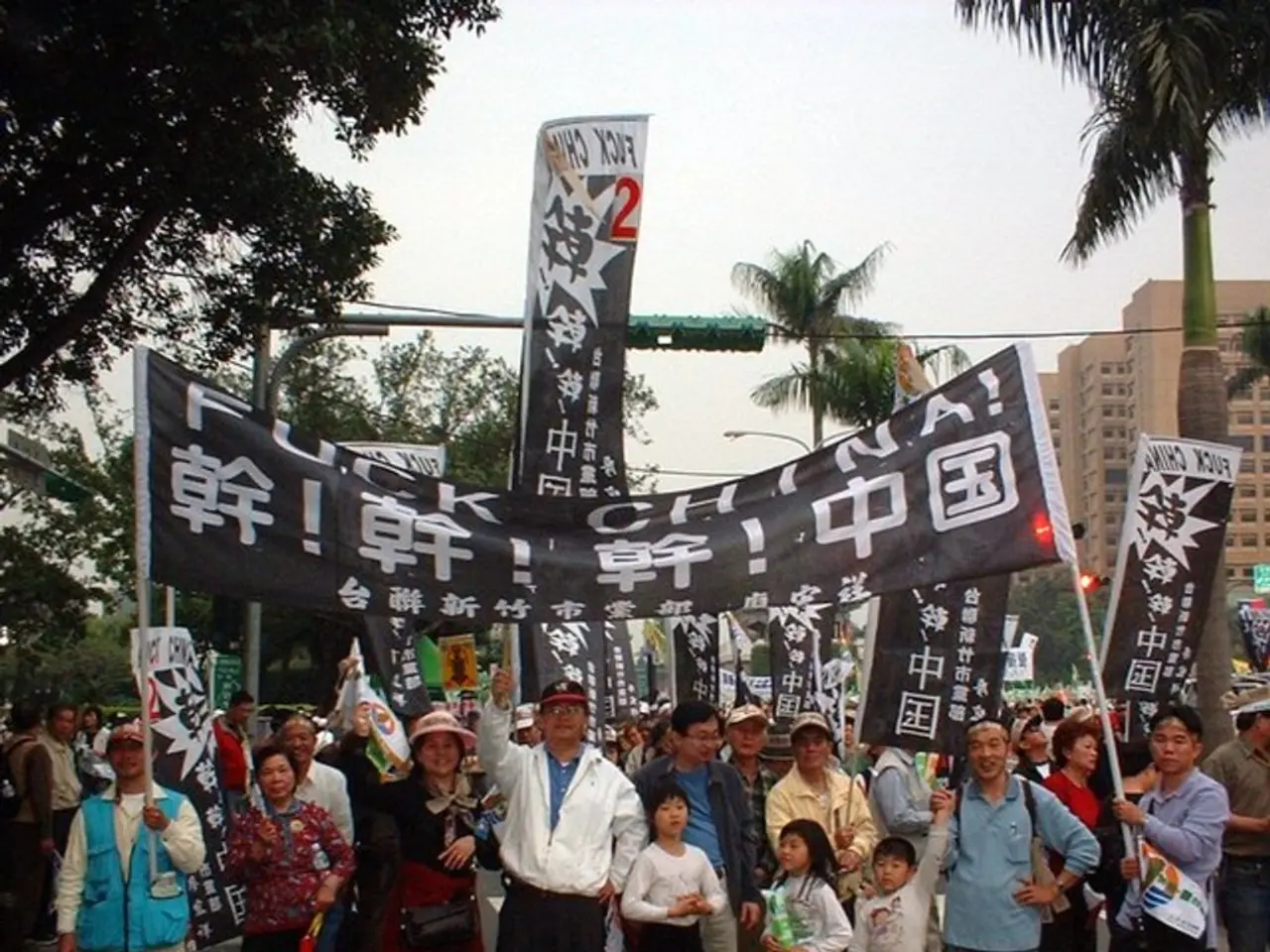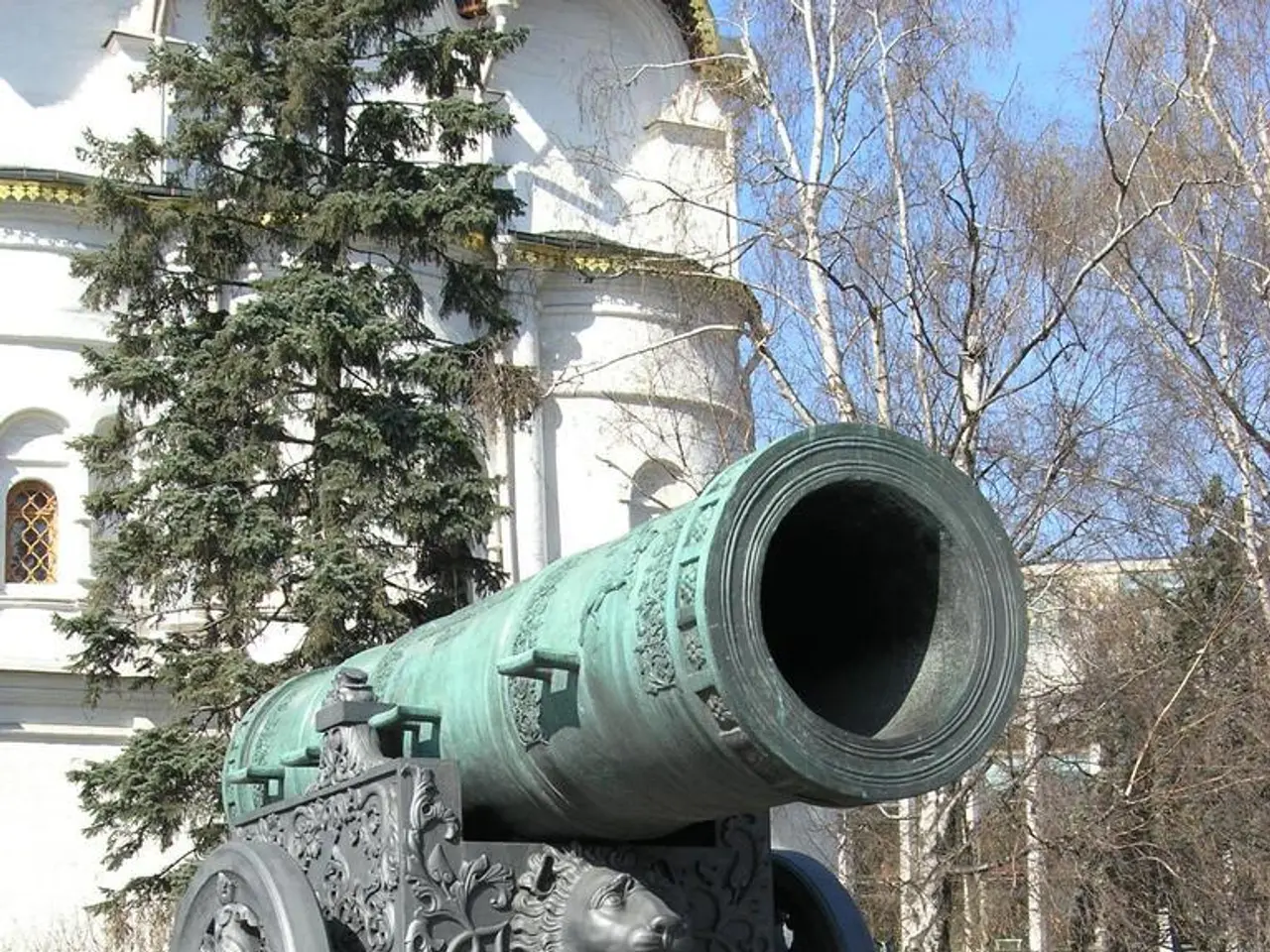Skip the Rainbow at Bundestag? Are Pride Parades Losing Their 'Progressiveness'?
Controversy Surrounds the Scale of CSD Parades
This year, in contrast to the usual festivities for Christopher Street Day (CSD), the rainbow flag won't be fluttering atop the Reichstag building. Guess why? Julia Klöckner, Bundestag's president, says so. But is the diversity society experiencing a backlash?
June is the month of Pride, and CSD parades have been a heartwarming tradition in Germany for decades. Celebrating and commemorating the first known uprising of queer minorities against police brutality in New York's Christopher Street, these parades have become a significant part of Germany's societal and political calendar.
The hoisting of the rainbow flag on the Reichstag building has been a symbol of diversity, self-determination, and an open society. However, it seems that's a relic of the past this year.
Politics Missing Support for Queer Community? Show the Colors, Bundestag! Klöckner explains that the Bundestag shunned the rainbow flag on July 26—the day of the Berlin CSD parade—because the flag had already made a political statement by being hoisted on May 17, alongside the federal and European flags on the Reichstag[1]. Critics, like Alexander Irmisch, an SPD politician and co-organizer of CSD in Regensburg, argue that this decision sends the wrong message[1]. Due to an "abstract threat situation," the parade in Regensburg on July 5 cannot take place as usual, but must be shortened[1].
"The increase in anti-queer sentiment currently necessitates special protective measures," says Irmisch[1]. In this "concern-inducing backdrop," the parade's rescheduling was apparently required for the safety of participants and security forces[1]. The LGBTQIA+ community needs political support now more than ever[1]. "It's also about symbols."
"Yielding to Conservative Tendencies"
Besides the absence of the rainbow flag, another symbol that has waned in recent years has been the participation of the queer network of the Bundestag administration in the CSD. But that's also a no-show this year. The newly-appointed director of the Bundestag, Paul Göttke, forbid it at the start of the week under the pretense of "mandatory neutrality obligation." Reportedly, Bundestag employees are free to attend and participate in CSD, but as individuals, not as a group[1].
Many, including the leader of Verdi, Frank Werneke, find this decision detrimental and a sign of bending to conservative tendencies[1]. They hope Göttke will revoke the "de facto demonstration ban."
Even the federal queer commissioner, Sophie Koch, doesn't approve[1]. If the participation of employee networks is restricted or made difficult, she considers it a wrong and unnecessary gesture—especially in the current situation[1].
Perspective The Creeping Queer-Intolerance "It begins with the fringe groups, but expands to the mainstream" Politicians from Left Party perceive the Bundestag's decision as "political and moral failure on all fronts"[1]. The Greens urged Klöckner to show her support for the freedom and security of queer individuals[1]. Members of the SPD parliamentary group also called on Klöckner to reinstate the queer group of the Bundestag administration in this year's Berlin CSD[1].
CSD Quashed in Wernigerode?
The decision made by the Bundestag administrative leadership comes at a time when anti-queer incidents are increasing[1]. In 2022, 1,765 cases related to sexual orientation (an 18% increase from 2023) and 1,152 cases against trans or non-binary people (a 35% increase) were reported[1]. The state of queer-hatred crime seems to have reached a disheartening crest.
Recently, unknown individuals assaulted a diversity festival in the Brandenburg town of Bad Freienwalde with hammers and wooden planks, injuring at least two people[1].
Politics Attack on Family Festival Hooded attackers also targeted an anti-right rally in Brandenburg[1]. Meanwhile, a 20-year-old in neighboring Saxony-Anhalt is accused of planning an attack on the Christopher Street Day in Wernigerode[2].
Right-wing extremists have declared a counter-demonstration against the Pride Parade in Berlin's Marzahn-Hellersdorf district for the upcoming weekend[2]. The neo-Nazi group “Deutsche Jugend voran” (DJV) is said to be behind the counteraction[2].
CDU Colleagues Stand Tall
However, not all politicians share the same stance as Klöckner. Karin Prien and Kai Wegner from the CDU, like in previous years, will join forces with the federal ministry of family affairs in Berlin's CSD[2]. "Our ministry will also be represented this year with its own float […]," said Prien to taz[2]. She believes it's "an important symbol of recognition and respect for diversity in our society."
The governing mayor of Berlin has also announced her participation in the city's CSD[2]. "Berlin is the city of diversity and tolerance," says Senate spokeswoman Christine Richter[2]. As such, the rainbow flag will be on display in Berlin on July 26—at the Red City Hall, and in the presence of the governing mayor[2].
[1] ntv.de
[2] taz
- LGBTIQ
- Homosexuality
- Equality
- SPD
- Police
- Violence
- Right-wing extremism
- Right-wing populism
- Julia Kloeckner
- CDU
- German Bundestag
- The Bundestag's decision to not hoist the rainbow flag for the CSD parade has been criticized by politicians such as Alexander Irmisch and Frank Werneke, who see it as a step towards conservative tendencies and a lack of support for the queer community.
- The absence of the queer network of the Bundestag administration at the CSD parades this year, due to the director Paul Göttke's mandatory neutrality obligation, is viewed by many as detrimental to the diversity and acceptance within the Bundestag.
- Politicians from various parties, such as the Left Party and the Greens, have spoken out against the Bundestag's decisions regarding the CSD, viewing them as political and moral failures in the face of increasing anti-queer incidents and a surge in right-wing extremism.
- The lifestyle and fashion of the LGBTIQ community are reflected on social media platforms, and are often intertwined with the political struggles and events surrounding their rights and equality, such as the CSD parades in Germany.





